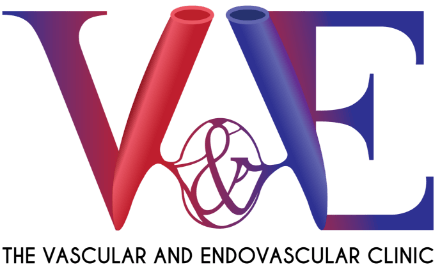What is a vascular surgeon?

What is vascular disease?
Vascular diseases are abnormal conditions of the blood vessels, which can have severe consequences such as disability and death if not attended to in a timely manner. Conditions such as the hardening of the arteries can create “traffic jams” in your circulatory system, obstructing the flow of blood to any part of the body, leading to target organ damage and potential failure. Damage to the valves in the venous part of the circulation can also cause backflow of blood to the legs, causing a hold-up of blood back to the heart.
Common examples of vascular diseases seen in Singapore include:
- ►Aortic aneurysm: This is an abnormal dilatation of the largest artery in the body called the aorta. As it dilates, the wall of the artery becomes weakened and can burst, causing bleeding and death.
- ►Carotid artery disease: The carotid arteries are the main blood supply to the brain. When these vessels fur up and become narrowed, the blood flow from the heart becomes diminished and can cause a stroke.
- ►Peripheral artery disease: This occurs when the arteries supplying blood to the legs and feet become blocked with fatty deposits from high cholesterol in the bloodstream. They are often seen in patients who have diabetes and are smokers. The lack of blood supply to the legs can cause pain, especially upon walking (“claudication”), and if severe, can cause gangrene and tissue loss resulting in major amputation/death if left untreated.
- ►Venous disease: This encompasses a large group of conditions including varicose veins (tortuous twisted veins on the surface of the leg), chronic venous insufficiency caused by a valvular failure in the leg veins, leading to a backlog of blood in the legs and resulting in limb swelling, skin irritation, and brown patchy staining, as well as discoloration and non-healing venous leg ulcers. Deep vein thrombosis occurs when the deep or major veins in the legs become blocked with a clot. This can happen spontaneously or can be provoked such as when patients are severely dehydrated and have cancer. Passengers on long airplane flights are also at risk of DVT as sitting still for long hours can lead to the development of blood clots.
What is vascular and endovascular surgery?
This encompasses the diagnosis, management, and treatment of diseases affecting the blood vessels in the body. Vascular surgery was traditionally performed through open surgical reconstruction or plumbing to bypass blockages or weak parts of the vasculature. These procedures were associated with relatively high morbidity and mortality.
With technological advances in both vascular diagnostics and therapeutics, vascular disease is now being diagnosed at an earlier stage, and “keyhole” or minimally invasive endovascular interventions such as angioplasty (which is ballooning and stenting involving wires and tubes through small arterial and venous needle punctures in the groin and arm) is being employed by endovascular surgeons to open up blocked or narrow blood vessels. This makes the procedure less traumatic and safer, allowing the patient to recover faster and return home earlier. This is similar to what we understand of ballooning and stenting in the small blood vessels in the heart performed by cardiologists. A “hybrid” procedure is when an open and keyhole approach is combined to give the optimum outcome.
A vascular surgeon does far more than surgery.
A modern vascular surgeon diagnoses and manages vascular conditions affecting nearly all the arteries, veins and lymphatic vessels in the body using a variety of approaches including medical treatment, open and endovascular techniques and even the conservative option of watchful waiting! The vascular and endovascular surgeons ensure patients with vascular health problems know and understand all their options. In short, vascular surgeons can do surgery, but they see and treat many patients who don’t require surgery. Many vascular problems can be treated with medication or exercise.
When do you need to see a vascular/endovascular surgeon?
The following conditions require you to seek a vascular opinion:
- Aortic aneurysm affecting the chest, abdomen, or pelvis
- Carotid artery disease which has caused a stroke
- Pain in the calf or thighs upon exercise or walking (intermittent claudication)
- Rest pain and cold feet keeping you awake at night
- Non-healing wounds (more than 2 weeks) on your feet – a sign of lack of blood supply to the legs
- Uncontrolled blood pressure or high cholesterol on your blood test
- Kidney failure that requires you to have dialysis via access such as an arteriovenous fistula, graft, or tube
- Unexplained upper and lower limb swelling
- Painful varicose veins
- Brown pigmentation or skin discoloration of the legs
- Restless legs or leg cramps with heaviness
- Venous leg ulcers
- Deep vein thrombosis (DVT)
- Vascular malformations of the limb and body, which may be congenital or acquired
- Erectile dysfunction
- Pelvic congestion syndrome – chronic pelvic pain due to varicose veins in the pelvis
Dr Wong is highly regarded for his specialised clinical interests and skills in a wide range of vascular conditions.









